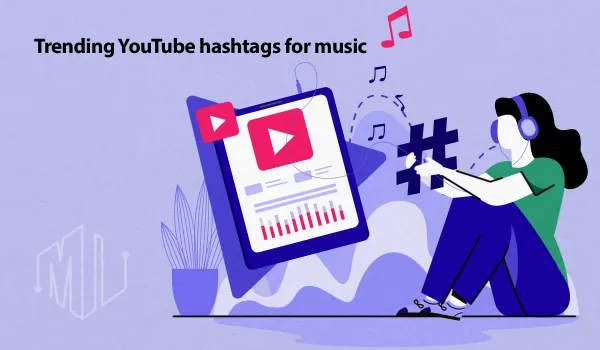How specialized keywords are revolutionizing content discovery on YouTube
Explore the impact of specialized keywords on YouTube content discovery, boosting video visibility and user engagement effectively.

The digital landscape of content creation and discovery is continually evolving, and nowhere is this more evident than on YouTube. In this dynamic ecosystem, the role of specialized keywords in revolutionizing content discovery cannot be understated.
Mastering YouTube SEO, which largely hinges on the strategic use of keywords, has become an essential skill for creators and marketers alike.
In this blog post, we delve into the transformative impact of specialized keywords on YouTube content discovery. As we navigate through the intricacies of YouTube SEO, we uncover how these keywords are not just mere YouTube tags, but powerful tools that align content with viewer preferences and search trends. This alignment is crucial in a platform that hosts millions of videos, where standing out and being easily discoverable can make the difference between obscurity and viral success.
Specialized keywords on YouTube serve as beacons, guiding viewers to the content they seek and helping creators and brands to cut through the noise to reach their target audience.
They are the linchpins in a complex algorithmic ecosystem, dictating which videos surface in search results, suggested content, and even trending feeds. This blog post aims to shed light on how these keywords work, why they are vital for effective YouTube SEO, and how they can be leveraged to optimize content visibility and engagement.
✨ Unleash the Power of AI with MagicalAPI!
Whether you’re optimizing YouTube content, extracting LinkedIn data, or evaluating resumes, MagicalAPI is your one-stop solution! Discover the diverse range of AI services tailored to meet your every need. Dive in and elevate your digital experience today!

The Evolution of Content Discovery on YouTube
The journey of content discovery on YouTube has been one of constant evolution, shaped significantly by the advent and refinement of YouTube SEO strategies. This evolution reflects the changing dynamics of how viewers find and engage with video content, and how creators optimize their content for better visibility.
In the early days of YouTube, content discovery was largely serendipitous. Viewers stumbled upon videos through a mix of basic searches and suggested content. However, as the platform grew, so did the competition for viewers' attention. This shift marked the beginning of a more structured approach to content discovery, where YouTube SEO started playing a pivotal role.
Specialized keywords have been at the forefront of this evolution. Initially, keywords were simple and broad, but as YouTube's algorithm became more sophisticated, the need for more specialized and targeted keywords grew. These keywords are not just about aligning with what a viewer might type into the search bar. They're about understanding the nuances of viewer intent, content relevance, and the intricate workings of YouTube's search and recommendation algorithms.
Today, YouTube SEO has become an intricate science. The use of specialized keywords now involves a deep understanding of a target audience's preferences, trending topics, and even the competitive landscape within a specific content niche. Keywords have become tools for creators to signal to YouTube’s algorithm what their content is about and for whom it is most relevant. This precision in keyword usage helps YouTube better match videos with viewer search queries, interests, and viewing habits, leading to a more personalized and satisfying viewing experience.
The impact of this evolution is twofold. For viewers, it means more efficient and relevant content discovery, leading them quickly to the videos they are most likely to enjoy. For creators and marketers, it translates into a more strategic approach to content optimization, where understanding and leveraging specialized keywords becomes essential to gain visibility in a crowded and competitive digital space.
Understanding YouTube's Algorithm
YouTube's algorithm, the backbone of YouTube SEO, is a complex and ever-evolving system designed to match viewers with content that they are most likely to enjoy and engage with.
At its core, YouTube's algorithm focuses on two main objectives: understanding user preferences and content relevance.
It uses a variety of signals to determine which videos are shown in search results, on the homepage, in suggested video sections, and under subscriptions. These signals include but are not limited to:
- Search Queries: The words and phrases that users type into the YouTube search bar are the most direct indicators of what they want to see. This is where specialized keywords play a critical role. By accurately incorporating these keywords into video titles, descriptions, and tags, creators can significantly increase the chances of their content being discovered by the right audience.
- Watch Time and Engagement: YouTube prioritizes content that engages users. This includes metrics like watch time, likes, comments, and shares. Videos that keep viewers watching for longer periods and prompt interaction are more likely to be favored by the algorithm.
- User History and Preferences: The algorithm also personalizes content based on a viewer's past interactions with the platform, including their watch history and the channels they subscribe to. This personalized approach means that two users searching the same term might see different results based on their individual viewing habits.
- Content Quality and Freshness: High-quality, recent content is often given preference in YouTube's search results. The platform aims to provide users with the most relevant, up-to-date information and entertainment.
- Click-Through Rate (CTR): How often users click on a video after seeing it in their search results or recommendations also influences how often that video is shown. Effective use of keywords in titles and thumbnails can increase CTR, signaling to YouTube that the content is relevant and engaging.
Understanding YouTube's algorithm is essential for creators and marketers who want to optimize their content for better visibility. It's not just about stuffing videos with keywords; it's about strategically using these keywords in conjunction with other SEO practices to create content that resonates with both the algorithm and the viewers.
The Impact of Keywords on Viewer Experience
In the realm of YouTube SEO, the impact of specialized keywords on viewer experience is profound and multi-dimensional. Keywords are not just tools for creators to enhance visibility; they significantly shape the viewer's journey on the platform, influencing what they find, watch, and how they engage with content.
- Enhanced Discoverability: Specialized keywords make content more discoverable. When creators use relevant and targeted keywords, their videos are more likely to appear in search results, recommended video sections, and even on the trending page. This enhanced discoverability is crucial in a platform where billions of videos vie for attention.
- Relevance and Personalization: YouTube's algorithm uses keywords to understand and categorize content, helping to personalize the viewer's experience. When viewers search for specific topics or themes, the algorithm presents videos that closely align with those keywords. This relevance ensures that viewers spend less time searching and more time consuming content that interests them.
- Viewer Expectation and Satisfaction: Keywords set expectations. When a video's title, description, and tags accurately reflect its content, viewers are more likely to find what they are looking for, leading to higher satisfaction and engagement rates. Misaligned keywords, on the other hand, can lead to disappointment and disengagement, as viewers may feel misled.
- Community Building and Loyalty: For creators, the strategic use of keywords can help in building a dedicated community. Viewers searching for specific interests are more likely to subscribe and engage with channels that consistently deliver content relevant to those keywords. This not only builds a loyal viewer base but also fosters a sense of community around shared interests.
- Long-Term Engagement and Growth: Over time, the consistent use of well-chosen keywords contributes to a channel's long-term engagement and growth. As viewers repeatedly find satisfying content under certain keywords, they are more likely to return to those channels, increasing watch time, likes, comments, and shares – all key metrics for a channel's growth on YouTube.
Challenges and Considerations in Keyword Usage
While specialized keywords are integral to effective YouTube SEO, their usage comes with its own set of challenges and considerations. Navigating these is crucial for content creators who aim to maximize their visibility and impact on YouTube. Here are some key aspects to keep in mind:
- Keyword Relevance vs. Overuse: One of the primary challenges is striking a balance between relevance and overuse. While it's important to include relevant keywords to improve discoverability, overusing them, a practice known as 'keyword stuffing,' can lead to negative consequences.
YouTube's algorithm is sophisticated enough to detect and penalize content that excessively uses keywords, potentially leading to reduced visibility. - Understanding Audience Search Intent: Another crucial consideration is aligning keywords with the audience's search intent. Keywords must accurately reflect the content of the video and match what potential viewers are searching for. Misalignment can result in poor engagement, as viewers might click away if the content doesn't match their expectations.
- Competition for Popular Keywords and contents: High-traffic keywords often come with high competition, making it challenging for new or smaller channels to rank for these terms. A better strategy might be to target more niche keywords that are relevant but less contested, providing an opportunity to reach a specific audience more effectively.
- Evolving Algorithm and Trends: YouTube's algorithm and viewer trends are continually evolving. Keywords that are effective today might not yield the same results tomorrow. Creators must stay informed about these changes and adapt their keyword strategies accordingly.
- Long-Tail Keywords vs. Short-Tail Keywords: There is a strategic decision to be made between using long-tail keywords (more specific and often less competitive) and short-tail keywords (more general and typically more competitive). While long-tail keywords can lead to more targeted traffic, short-tail keywords can attract a broader audience.
- Localization and Multilingual Content: For creators targeting a global audience, considering localization and multilingual SEO is important. This involves using keywords that resonate with non-English speaking audiences or varying cultural contexts.
- Integration with Overall Content Strategy: Finally, keywords should be part of a holistic content strategy. This means that they should not only be optimized for SEO but also reflect the brand's voice, message, and goals. The content should deliver on the promise made by the keywords to build trust and authority with the audience.

The Evolving Role of Keywords in Content Discovery
As we delve deeper into the world of YouTube SEO, it becomes evident that the role of keywords in content discovery has undergone significant evolution. This transformation is pivotal in understanding how content reaches its intended audience on YouTube, a platform where content abundance and viewer choice create a highly competitive environment.
- From Basic Tags to Strategic Tools: In the early stages of YouTube, keywords were used as basic tags, a simple way to categorize content. However, as the platform evolved and competition intensified, keywords transformed into strategic tools. Creators began to use them not just for categorization, but to strategically align their content with viewer search habits and preferences.
- Integration with YouTube's Algorithm: YouTube's sophisticated algorithm has elevated the importance of keywords. The algorithm considers keywords as crucial indicators of a video’s content and relevance, impacting how it ranks in search results and appears in recommendation feeds. The effective use of keywords, therefore, is integral to ensuring that a video is indexed correctly and reaches its target audience.
- Shift Towards Viewer Intent: Modern YouTube SEO practices focus heavily on viewer intent – understanding why viewers search for certain content and what they expect to find. Keywords now serve as a bridge between content and viewer intent, guiding creators to produce and label content in ways that fulfill audience needs and interests.
- Long-Tail Keywords for Niche Targeting: The role of long-tail keywords – specific phrases that viewers are likely to search for – has become increasingly important. These keywords allow creators to target niche audiences with precision, making their content more likely to be discovered by viewers looking for specific topics or answers.
- Balance Between Broad and Niche Keywords: Creators must navigate the balance between using broad and niche keywords. Broad keywords offer wider visibility, while niche keywords target specific audiences. The art lies in blending both to maximize reach and relevance.
- Keywords in the Age of Voice Search and AI: With the rise of voice search and AI-driven recommendations, the role of keywords is adapting once again. Content creators must consider how people verbally ask for content, as voice searches tend to be more conversational and longer than typed searches.
- Continuous Learning and Adaptation: Finally, the evolving role of keywords in content discovery necessitates continuous learning and adaptation by creators. As viewer behaviors and platform algorithms change, so must keyword strategies. Staying informed and agile is key to success in YouTube SEO.
Conclusion
As we have seen, specialized keywords act as powerful connectors between creators and their target audience. They help in navigating the vast sea of content on YouTube, ensuring that the right content reaches the right viewers. This precision in content discovery not only enhances the viewer experience but also empowers creators to tailor their content strategy to meet specific audience needs and interests.
However, the ever-evolving nature of YouTube's algorithm and viewer preferences means that YouTube SEO is a continuous learning process. Staying ahead in this dynamic environment requires creators to constantly refine their keyword strategies and adapt to new trends and insights.
For those looking to harness the full potential of YouTube SEO, our specialized service at MagicalAPI offers the expertise and tools you need. Our YouTube SEO service provides in-depth analysis, tailored keyword strategies, and ongoing support to optimize your content for maximum visibility and engagement on YouTube. Whether you are a budding vlogger, an established brand, or a creative content producer, our service equips you with the insights and strategies to thrive in the competitive landscape of YouTube.
FAQ
- What are specialized keywords on YouTube?
Specialized keywords are specific, targeted phrases that content creators use to enhance the discoverability of their videos. Unlike broad keywords, these are more niche and are tailored to match the exact interests and search queries of a particular audience. - How do specialized keywords improve YouTube content discovery? Specialized keywords improve content discovery by helping YouTube's algorithm better understand and categorize videos. This increased accuracy means that videos are more likely to be recommended to users who have a specific interest in the content.

Join to our community
By joining our Discord server, get assistance, and troubleshoot any challenges you may encounter while using our services.
Join us on Discord




